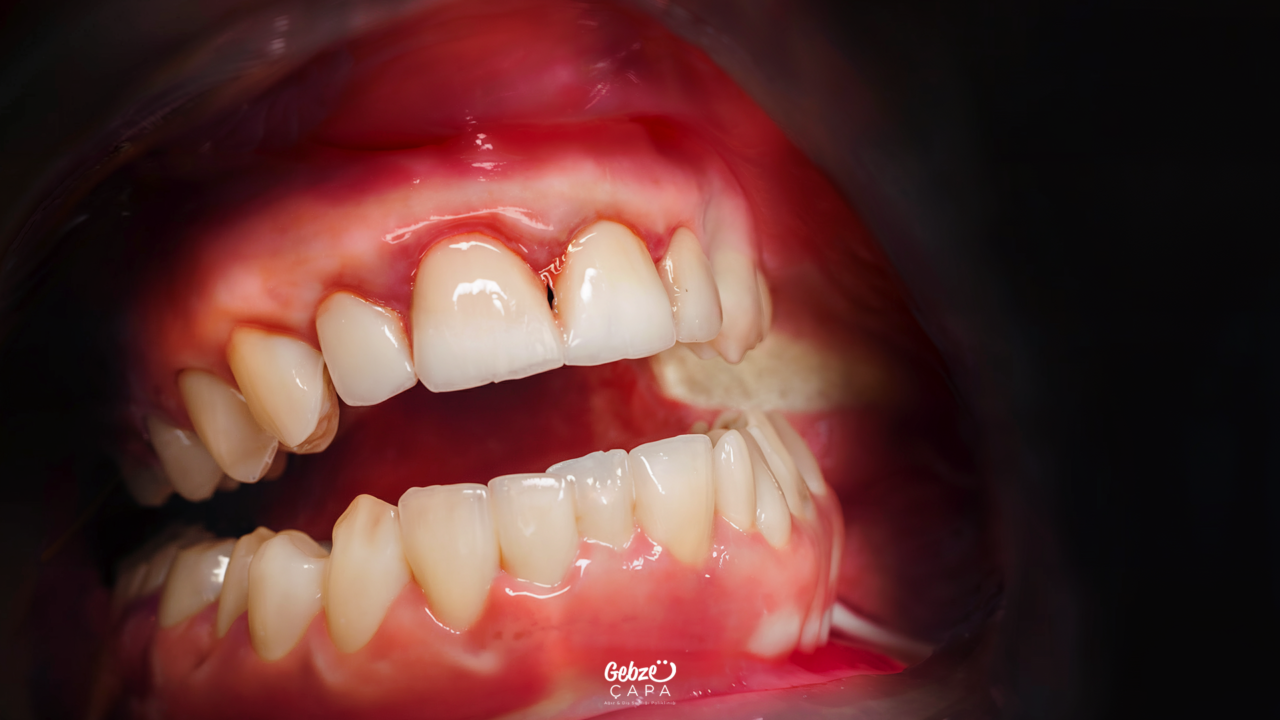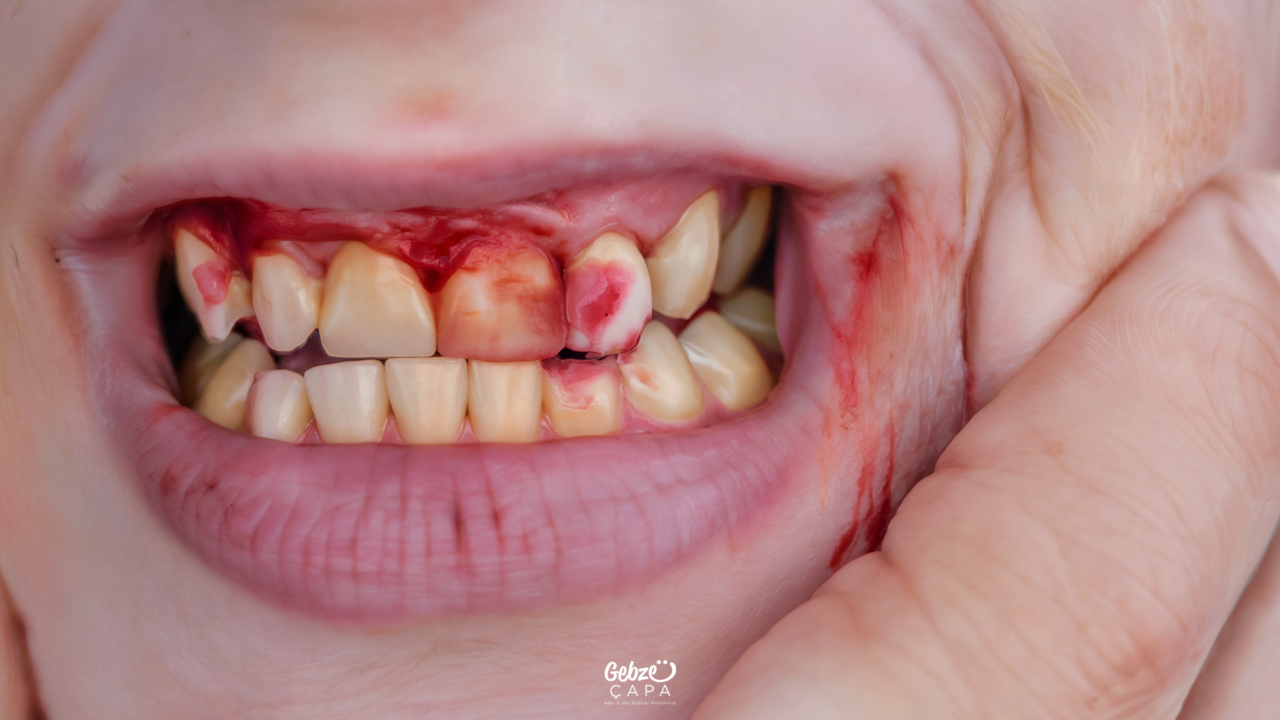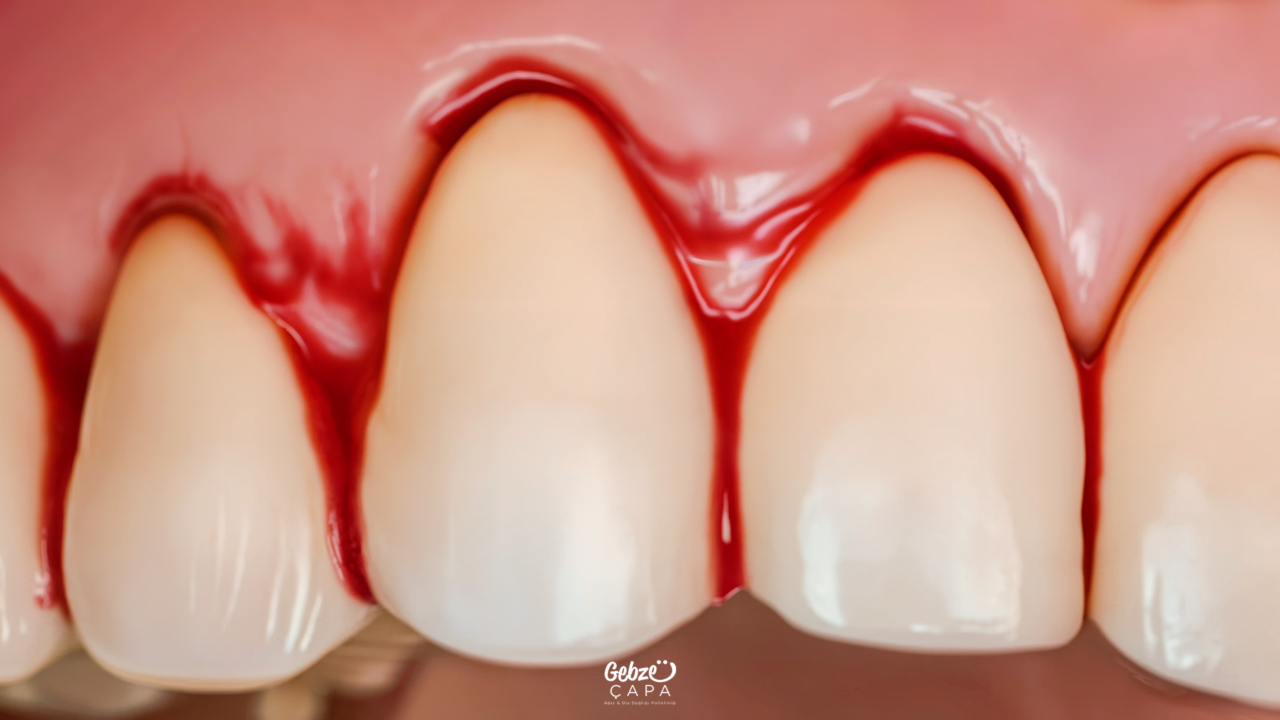Bleeding Gums
Bleeding gums is a common dental health problem and often occurs as a symptom of gum disease. Bleeding gums not only create an aesthetic problem, but can also indicate poor oral health and signal potential health problems. Bleeding gums can often occur during tooth brushing, flossing, or sometimes even during a natural process. The severity of this condition may vary depending on personal oral hygiene, overall health, and whether treatment is started promptly.
Why do gums bleed
Gum Diseases: The most common cause of bleeding gums is gum disease. Gum diseases usually cause inflammation in the gums and cause bleeding. Gingivitis is a condition in which the gums become inflamed at an early stage and is usually caused by plaque accumulating on the teeth. Plaque causes bacteria to accumulate, which leads to inflammation and bleeding in the gums. If gingivitis is left untreated, it can turn into periodontitis. Periodontitis is a more advanced disease that causes inflammation of the gums at deeper levels and bone loss. Gums can recede around the teeth, exposing the tooth roots, which can cause bleeding gums and loosening of the teeth.

- Oral Hygiene Deficiencies: Inadequate oral hygiene directly affects the health of the gums. Not brushing and flossing your teeth regularly can cause plaque to accumulate between the teeth and on the gums. Plaques irritate the gums and can cause inflammation and therefore bleeding. Poor oral hygiene paves the way for the development of gum diseases and encourages bacterial infections that lead to bleeding in the gums.
- Dental Calculus (Tartar): Dental tartar is plaque that accumulates and hardens on the teeth. Dental tartar is formed as a result of the accumulation of hardened plaques on the surface of the teeth, and these plaques can progress under the gums. Dental tartar can cause inflammation of the gums and lead to bleeding. Cleaning tartar is possible with professional dental cleaning, and regular cleaning of tartar is important to maintain gum health.
- Tooth Brushing Techniques: Tooth brushing techniques can have a direct impact on the health of the gums. Hard-bristled toothbrushes or vigorous brushing can damage gums. Hard brushing can cause abrasions and irritations in the gums, which can lead to bleeding. Acting gently and using soft-bristled toothbrushes while brushing your teeth helps protect your gums.
- Nutritional Deficiencies: Nutrition directly affects the health of the gums. Vitamin C deficiency, in particular, can cause bleeding gums. Vitamin C helps strengthen connective tissues and keep gums healthy. Vitamin C deficiency can cause weakening and bleeding gums. A balanced diet is important to maintain the health of your gums and prevent gum disease.
- Hormonal Changes: Hormonal changes can affect the health of your gums. Hormonal changes during periods such as pregnancy, menstrual cycle or menopause can cause changes and sensitivity in the gums. These hormonal changes can make the gums more sensitive and lead to bleeding. Especially during pregnancy, bleeding may increase because the gums are more sensitive.
- Chronic Diseases: Some chronic diseases, such as diabetes, can affect the health of the gums and cause bleeding gums. Diabetes can increase the risk of gum inflammation and make it harder for the gums to heal. Management of such diseases is important for maintaining gum health.
- Medications: Some medications used may cause bleeding gums. Blood thinners, in particular, can increase bleeding gums by affecting blood clotting. Side effects of these medications may include bleeding gums, which may require consulting a healthcare professional about medication dosage or alternative treatment options.

Symptoms of Bleeding Gums
Some obvious symptoms of bleeding gums are:
- Bleeding from the gums when brushing or flossing
- Redness, swelling or tenderness of the gums
- Pain or discomfort in the gums
- bad breath
- Receding gums and teeth appearing longer
How to Cure Bleeding Gums
You can take some important steps to prevent bleeding gums:
- Regular Tooth Brushing: Brush your teeth at least twice a day with a soft-bristled toothbrush. Brushing your teeth helps remove plaque and maintains the health of your gums.
- Flossing: Use dental floss to remove plaque and food debris from between your teeth. Dental floss removes plaque from the areas under the gums and prevents gum diseases.
- Regular Dentist Check-ups: Go to your dentist regularly. Your dentist can assess your gum health and diagnose gum disease at an early stage.
- Healthy Diet: Follow a diet rich in vitamin C and other nutrients. This supports the health of the gums and reduces the risk of bleeding.
- Avoid Hard Brush and Excessive Pressure: Avoid brushing your teeth with hard bristle brushes and be gentle when brushing your teeth.
- Cleaning Teeth: Get a professional dental cleaning to remove tartar. Tartar can lead to gum disease, and regular cleaning reduces this risk.
How to Treat Bleeding Gums
Treatment for bleeding gums varies depending on the cause of the bleeding:
- Gingivitis and Periodontitis Treatment: Your dentist can offer professional cleaning and treatment recommendations. This treatment aims to remove plaque and tartar build-up and restore the health of the gums.
- Improving Oral Hygiene: Review your brushing and flossing habits and, if necessary, get information from your dentist about the correct techniques.
- Vitamin and Nutritional Supplements: If you have a vitamin C deficiency, your doctor will recommend vitamin supplements or dietary changes.
- Medication Adjustments: If your gum bleeding is related to the medications you use, your doctor may review your medication dosage or offer alternative treatment options.
- Management of Chronic Diseases: If you have a chronic disease such as diabetes, managing this disease effectively can have a positive impact on your gum health.

To summarize: Bleeding gums can often be a symptom of a more serious problem and should not be ignored. Regular oral hygiene practices, a healthy diet, and professional dental care are important to maintain gum health and prevent bleeding. Remember that when you experience bleeding gums, you should consult a dentist for early diagnosis and treatment.


